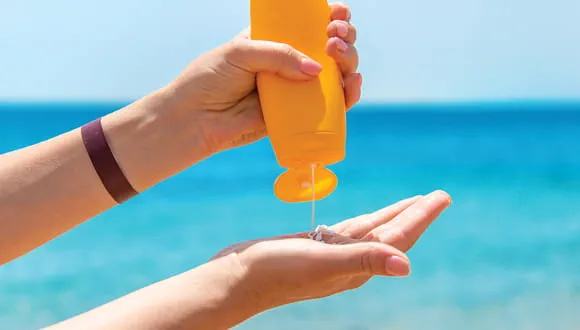Mineral vs Chemical Sunscreen: What is the difference between mineral and chemical sunscreen?
Mineral vs Chemical Sunscreen: which one is best for you?: Sunscreen is an important step in our skincare. It is advisable to apply sunscreen before stepping out of the house. sunscreen protects you from tanning and sunburn caused by the sun. It also protects the skin from harmful UV rays. There are many types of sunscreens available in the market right now, including mineral and chemical sunscreens. Both these sunscreens help protect the skin from the sun’s rays. However, its ingredients are different.
Ingredients like zinc oxide and titanium dioxide are used in mineral sunscreens. On the other hand, Avobenzone, Oxybenzone, and Octinoxate are used in chemical sunscreens. Some people think that no chemical is used in mineral sunscreens. However, this is not true. In such a situation, let us know how different mineral sunscreen is from chemical sunscreen, and which of the two is best for you?
What is a mineral sunscreen?
Mineral sunscreen is also called organic and physical sunscreen. Its texture is thick. This sunscreen is made of mineral sea, which works to protect the skin from the ultraviolet light emanating from the sun. Ingredients like zinc oxide and titanium dioxide are added to this sunscreen, which work as a shield for the sun’s rays. Mineral sunscreen starts showing its effect as soon as it is applied on the skin.
What is a chemical sunscreen like?
Many types of chemicals are used in chemical sunscreens. It provides sun protection to the skin. It protects from UV rays. Chemical ingredients like Avobenzone, Oxybenzone, and Octinoxate are used in it. After applying this type of sunscreen on the face, it does not get absorbed quickly and takes some time to dry. Also, it starts showing its effect after some time.
Advantages of Mineral Sunscreen:
- Ideal for Sensitive Skin:
Mineral sunscreens are gentle and less likely to cause irritation or allergic reactions, making them suitable for people with sensitive skin. - Free from Harmful Chemicals:
They typically do not contain harsh or irritating chemicals like oxybenzone or avobenzone, which makes them safer for both the skin and the environment. - Safe for Children:
Due to their mild formulation and lack of harmful additives, mineral sunscreens are often recommended for babies and children. - Helps Prevent Acne Breakouts:
Mineral sunscreens are non-comedogenic, meaning they do not clog pores. This makes them a better option for people who have acne-prone skin. - Immediate Sun Protection:
Unlike chemical sunscreens that need about 15-20 minutes to become effective, mineral sunscreens start working right after application by forming a physical barrier.
Disadvantages of Mineral Sunscreen:
White Cast on Skin:
Ingredients like zinc oxide and titanium dioxide can leave a visible white film on the skin, especially noticeable on darker skin tones, which some users may find unappealing.
Thick Texture:
Mineral sunscreens tend to be thicker than chemical ones, which can make them feel heavy and less comfortable on the skin.
Difficult to Spread:
Because of their dense consistency, spreading mineral sunscreen evenly over the entire face or body can be challenging.
Advantages of Chemical Sunscreen:
- Lightweight Texture:
Chemical sunscreens usually have a thin, lightweight consistency, which makes them easy to spread and comfortable to wear on the skin. - No White Cast:
Unlike mineral sunscreens, chemical sunscreens do not leave a visible white layer on the skin, making them more suitable for all skin tones, especially deeper ones. - Long-Lasting and Water-Resistant:
Thanks to their water-light formula, chemical sunscreens tend to stay on the skin longer and are less likely to wash off with sweat or water. This makes them ideal for outdoor activities, swimming, or sports.
Disadvantages of Chemical Sunscreen:
Delayed Protection:
Chemical sunscreen needs time to absorb and become effective, usually about 15–20 minutes. It must be applied well before sun exposure to offer proper protection.
May Cause Skin Irritation:
Since chemical sunscreens absorb UV rays through chemical reactions, some people—especially those with sensitive skin—may experience redness, itching, or allergic reactions.
Which sunscreen is better for you?
Both these sunscreens have their advantages and disadvantages. For the past few years, mineral sunscreens have been more preferred because they do not contain harmful chemicals. A 2019 study shows that the active chemical ingredients present in sunscreens can be absorbed into the bloodstream and cause problems like rashes. However, many people believe that mineral sunscreens are a better option.
ALSO READ: Nayanthara Upcoming Movies





